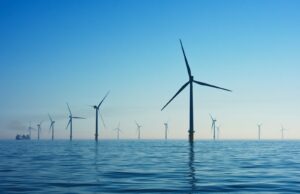The United Arab Emirates (UAE) plans to develop a 2 gigawatt (GW) solar-energy scheme, the largest single-site solar scheme in the world, however, they will also maintain plans to increase oil production to 4m barrels a day by 2020.
On October 31, international renewable energy developers will submit proposals for the solar site and the project has attracted significant interest from almost 50 companies from the global renewable energy market.
While the majority of renewable energy capacity installed by 2030 will emanate from the solar development, Dubai is relying on the successful implementation of its ambitious Shams rooftop solar program to meet its 75% clean energy goal by 2050.
The Shams initiative encourages businesses and residences to install solar panels connected to the grid under a net metering agreement.
Users will then receive a reduction in energy bills for the power that their facility produces.
Andrew Roscoe, editor at GlobalData MEED energy said: ‘The United Arab Emirates (UAE) is now a leading player in the development of large-scale renewable energy schemes.’
‘They are also making remarkable progress on its ambitious path towards 44% of its energy coming from renewable sources by 2050.’
‘The latest project shows that solar schemes are no longer simply vanity projects for the Gulf’s oil-rich countries. They form a key part of long-term energy goals.’
However, the UAE is still the seventh-largest crude oil producer and the fourth-largest producer of petroleum liquids in the Organization of the Petroleum Exporting Countries (OPEC), they produced upwards of 3.4 million barrels per day of crude oil in 2018.
According to the UAE Central Bank’s latest statistics, UAE’s petroleum exports grew by 13.9% to $66.2 billion in 2019 compared with $58.1 billion in 2017.
The oil firm ADNOC and its operating companies are in the process of expanding the output of crude oil production capacity to 4m barrels per day by the end of 2020 and 4m barrels a day by 2030.
In related news, solar power is set to become the world’s largest source of power by 2035 as the cost of renewables falls, a new report has found.
Photo Credit – Pixabay
















